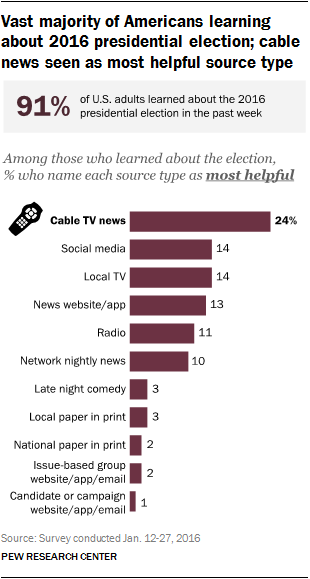There’s an update in the Smartmatic and Dominion voting machine lawsuits against, um, a bunch of people. Here’s a list of who is being sued. And here’s the update, from the same source.
Voting company Smartmatic’s defamation lawsuit against Fox News and several of its anchors can move forward, a judge ruled Tuesday, also reinstating some claims against attorney Rudy Giuliani, as Smartmatic and rival company Dominion Voting Systems pursue a dozen defamation lawsuits over baseless election fraud claims about their voting machines.
This article at NPR will catch you up on a couple of the suits, which are being heard by Delaware Superior Court Judge Eric M. Davis. I found this bit especially interesting.
Like Dominion, Smartmatic was the subject of false claims that its software had switched Trump votes to Joe Biden. Those claims were broadcast on Newsmax, Fox News and elsewhere.
Davis earlier this month denied Newsmax’s request to toss out Smartmatic’s defamation claim. Davis ruled that the facts pleaded by Smartmatic lead him to “reasonably infer” that Newsmax’s airing of stolen-election claims was reckless enough to meet the high legal bar required for defamation.
“Newsmax either knew its statements regarding Smartmatic’s role in the election-fraud narrative were false, or at least it had a high degree of awareness that they were probably false,” the judge stated.
Awhile back I wrote about the “actual malice” and “reckless disregard for the truth” standards from the old New York Times v. Sullivan (1964) case. Sullivan basically protects news outlets from being sued into bankruptcy for reporting negative things about politicians and other people of public interest. Very briefly, even if, say, a newspaper made a mistake and reported something that is false about a public figure, the public figure cannot collect damages unless he can prove the reporting was done with “actual malice” or “reckless disregard for the truth.”
These are both high bars, but they shouldn’t be insurmountable. Fox and other right-wing news outlets that pushed the stories about voting machines “stealing” votes from Donald Trump are arguing that they were just covering both sides. Trump and his people were making the accusations against the voting machine companies, which is a newsworthy thing, and we’re just reporting what they are saying. It’s not our responsibility to fact check them.
Just to be clear, here’s an example of the kind of thing being shown on Fox News after the 2020 election.
Fox showed Dominion’s disclaimers, but this was not really an equal presentation of “both sides.” And as I wrote in the earlier post, this “both sides” standard has done a huge disservice to the American public for years. “Covering both sides” has meant, for example, pitting a climate scientist and a climate change denier against each other in a studio while a moderator simply sits there and offers no editorial context. There’s been less of that in recent years than there was, say, during the George W. Bush years (remember Crossfire?). But it still happens way too much. And what Jeanine Pirro is doing in that video is not journalism, either. Allowing a partisan hack to present unsubstantiated nonsense without challenging it robustly needs to qualify as “reckless disregard for the truth.”
This suit is complicated, IMO, by the fact that the litigant voting machine companies are not public office holders but businesses, and the defamation on the part of right-wing news must certainly have hurt their ability to do business. Plus many of the claims being made about Dominion and Smartmatic, such as alleged ties to the government of Venezuela, could be debunked via a ten-minute Google search. It’s not that hard.
Anything calling itself “journalism” should be required a certain amount of due diligence to fact check or at least acknowledge that facts are not known. It’s never perfect. News reporting is a messy business, and even the best reporters will get facts wrong sometimes. But I don’t think the Sullivan standards mean that no effort need be made at all.
In other legal news, MSNBC reported last night,
The special counsel investigating Donald Trump’s handling of classified documents is seeking to compel a lawyer for the former president to testify before a grand jury, a source familiar with the matter said.
Prosecutors allege in a sealed filing that they have evidence that some of Trump’s conversations with the attorney were in furtherance of a crime, the source said.
In a sign of an aggressive new legal strategy, first reported by The New York Times, the source said special counsel Jack Smith has asked a judge to allow prosecutors to invoke what’s known as the crime-fraud exception, which would let them sidestep protections afforded to Trump lawyer Evan Corcoran through attorney-client privilege.
I like the furtherance of a crime part. Evan Corcoran, of course, is the lawyer who allegedly told Christina Bobb to sign a statement last June that all of Trump’s White House documents had been turned over to the proper authorities. Steve Benen provides background.
Finally, we get to Mike Pence, who is fighting a Jack Smith subpoena by citing the “speech and debate” clause from the Constitution. Article I, Section 6, Clause 1:
The Senators and Representatives shall receive a Compensation for their Services, to be ascertained by Law, and paid out of the Treasury of the United States. They shall in all Cases, except Treason, Felony and Breach of the Peace, be privileged from Arrest during their Attendance at the Session of their respective Houses, and in going to and returning from the same; and for any Speech or Debate in either House, they shall not be questioned in any other Place.
Pence, of course, was neither a Senator nor a Representative. But Pence is so concerned about Separation of Powers that he refused to speak to the January 6 committee because they were legislative and he was executive. Now he’s flipping that around and saying that he was legislative while Jack Smith works for the executive. But given the corruption of our courts, few people are willing to come out and say Pence couldn’t get away with this.


